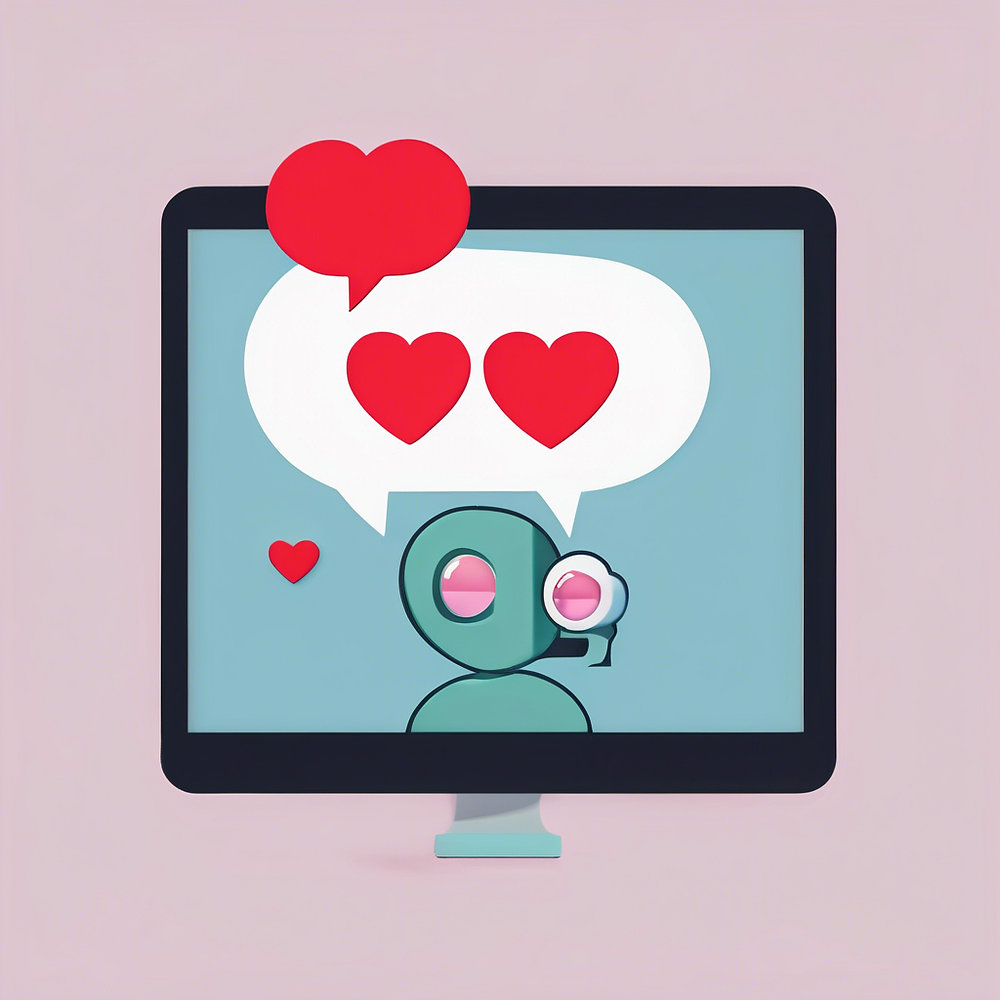
AI Relationship Psychology: The Rise of Digital Companionship
Mar 28
4 min read
0
33
0

In the digital age, artificial intelligence is reshaping how we connect—not just with information and entertainment, but with each other. One of the most fascinating (and controversial) developments is the rise of AI chatbots designed to simulate friends or romantic partners: virtual companions designed to offer emotional support, intimacy, and even romance. These AI-driven chatbots, available through apps like Replika, EVA AI, and Kajiwoto, can engage in meaningful conversations, learn user preferences, and provide a sense of companionship.
But what does this mean for real human relationships? Are AI partners a helpful tool for loneliness, or do they risk replacing genuine human connection? Let’s explore the psychological, ethical, and relational implications of dating AI chatbots!
The Appeal of AI Romantic Partners
For many users, AI chatbots offer something human relationships can’t always provide—unconditional attention, emotional safety, and complete customization. People who struggle with social anxiety, isolation, or past sexual trauma that makes physical intimacy triggering, may find comfort in a chatbot that listens without judgment, responds in ways they enjoy, and never rejects or abandons them. Imagine a partner who comes with no baggage, no exes you need to keep an eye on, and no mother-in-law you can't bear to be around!
These AI companions are designed to be engaging. Machine learning models analyze past conversations to adapt and refine responses, creating the illusion of deepening intimacy. Users can even personalize their chatbot’s personality, voice, and appearance, making the experience feel even more immersive.
Potential Benefits of AI Relationships
While AI partners can’t replace human relationships, they may serve as a valuable tool for emotional well-being. Some of the potential benefits include:
Reducing Loneliness: AI companions can provide conversation and emotional support, particularly for those who feel isolated such as those who are elderly or disabled, or feel ostracized at school or in their social life.
Social Skill Practice: People with anxiety or difficulty forming relationships may use AI chatbots to practice social interactions in a low-stakes environment. Their jokes will always get a laugh and they will never be left on read.
Mental Health Support: Some AI models are designed with therapeutic features, offering mindfulness exercises and affirmations. A piece of research that just came out yesterday details how effective chatbot therapists can be at addressing varied mental health concerns.
Filling Emotional Gaps: Those in long-distance relationships or struggling with emotional intimacy may use AI to supplement their emotional needs. One group might be new mothers, who often report loneliness at much higher levels than the general population.
The Risks and Ethical Concerns
Despite their benefits, AI relationship chatbots also come with potential downsides. These include:
Emotional Dependence: Some users may develop an unhealthy attachment to AI partners, prioritizing artificial relationships over real ones. I like to define dependence as trusting someone else more than you trust yourself, and it can be easy to put trust in an AI that has seemingly bottomless knowledge beyond any one human's capacity.
Data Privacy Issues: AI chatbots collect and analyze personal data—raising concerns about security and potential misuse of sensitive information. The more intimate the conversation you are having with a chatbot the more compromising the information you share might feel.
Reinforcement of Unrealistic Expectations: Because AI companions are designed to be “ideal” partners, users may struggle with the messiness of real human relationships. A partner who always agrees with you and has no needs of their own is not providing anyone with practice for dating another human being. One big ethical question surrounds users who program their AI partners to emulate sexual situations that would otherwise be illegal, such as rape or pedophilia - is this protecting victims by giving potential perpetrators an outlet for their desires or will this inevitably cause users to eventually want "the real thing"?
Exploitation of Vulnerability: Some apps monetize intimacy, charging for premium features like "romantic" or "spicy" conversations. In this mode, we can see parallels with platforms like OnlyFans where consumers may be prompted to provide cash tips to demonstrate their affection for a particular performer.
AI and the Future of Human Connection
AI chatbots reflect a growing shift in how people seek companionship. While they may never fully replace human relationships, they do highlight a key truth—loneliness is a pressing issue, and many people feel disconnected from real human intimacy. The after-effects of the COVID pandemic, increased remote work, increased social media use and myriad other demographic and technological factors have led to us all craving more genuine connection. Rather than seeing AI as the enemy of human connection, perhaps the better question is: How can we use technology to enhance real-world relationships instead of replacing them? AI should be a tool that supports human well-being, not one that isolates us further.
How This Relates to My Work
As a therapist and sober coach, I see firsthand how relationships—both real and virtual—affect mental health and recovery. While AI chatbots can provide temporary comfort, genuine human connection remains essential for emotional resilience and growth. If you're struggling with loneliness, relationships, or emotional well-being, let's talk. Together, we can explore healthy ways to build meaningful connections that support your personal journey.





